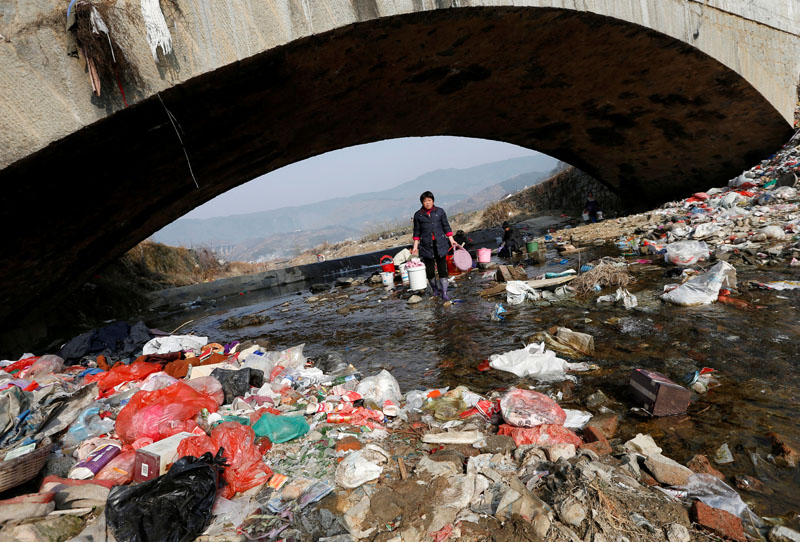Govt to levy fines to control river pollution
Kathmandu, January 6
With an aim to maintain a clean and lively river system where the quality and quantity of water flowing through the rivers is as per the given standard, the government is planning to levy fines on those who are held responsible for polluting the rivers.
The government also plans to recover the cost for transforming the rivers to their earlier condition from those who have had a hand in polluting the rivers and the environment as a whole.
The draft of the National Water Resources Bill prepared by the Water and Energy Commission Secretariat under the Ministry of Energy, Water Resources and Irrigation (MoEWRI) has stated that the government will give priority to safeguarding the environment and maintaining the quality of drinking water as per the constitutional provision of the country.
As per the draft bill, the three layers of government — federal, provincial and local — have the right to impose appropriate tariffs, service charges, royalties, licensing fees, among others for future water resources development and operation of the built infrastructure.
Likewise, if anyone wants to build projects in areas close to river basins which could have other environmental consequences too then the concerned party must provide necessary financial resources to those affected by the projects.
Moreover, if the locals need to be relocated due to such projects then the cost to relocate the locals must also be borne by the project developer.
“If the use of the water resources by any project has an adverse effect on the existing usage pattern, then such projects can be operated only after compensating the affected consumers,” the draft states.
The draft also mentions that if there are chances that a project is going to have a long-term impact on the environment of the region that it is located in then the government must not allow such projects to be developed. Projects which could cause change in the rainfall pattern, or induce landslides or even glacial eruptions must be strictly prohibited, as per the draft.
For the systematic development and management of water resources, master plans will be drafted for all the river basins of the country that will include criteria for the use of water for various purposes including domestic use, irrigation, agriculture and livestock farming, hydropower, industrial purposes, recreation and water transport, religious and cultural events. Moreover, the draft says that the existing master plans related to river basins must be updated regularly as per the requirement.
As per the draft bill, a new arrangement will be made to provide a one-time licence for the development and operation of hydropower projects by conducting a strategic feasibility study of the project by the concerned government agencies.
Likewise, for the legal use of water resources for irrigation, drinking water, hydropower and other purposes permits will be issued by the local or provincial governments. And if there is any dispute regarding the utilisation of water resources at the local or provincial level then the central government shall make a decision on the matter, the draft states.






